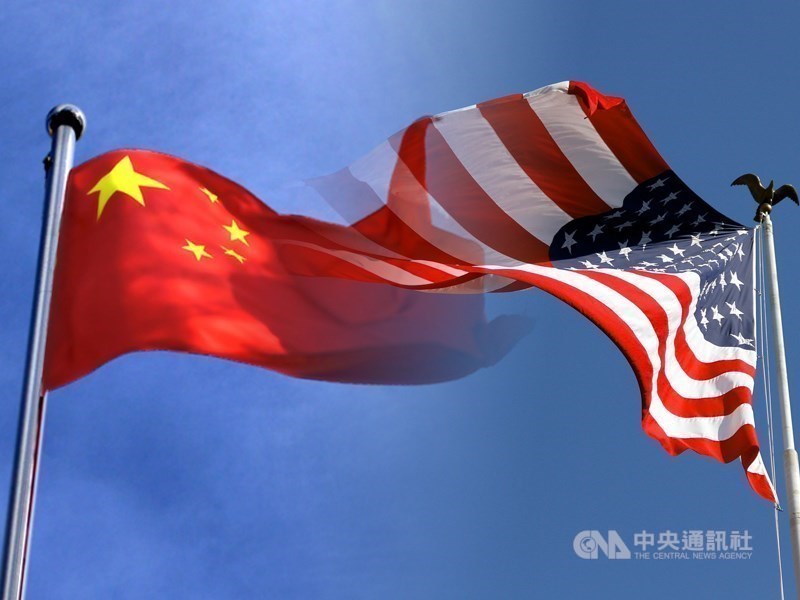Xi gives attention to Taiwan issue in latest call with Trump: Experts

Washington, Nov. 24 (CNA) Chinese President Xi Jinping (習近平) used his latest phone call with United States President Donald Trump to raise the Taiwan issue and make clear its stance on the matter, two American experts on cross-Taiwan Strait issues told CNA Monday.
Trump and Xi spoke on the phone on Monday, though neither side disclosed who initiated the call, according to separate announcements made by both governments.
In describing the call on Truth Social, Trump did not mention that the Taiwan issue was touched on during the call, and White House Press Secretary Karoline Leavitt told reporters the call with Xi was focused on trade.
Xi, however, was cited in a state-run Xinhua New Agency article Monday as saying that he highlighted "China's principled position on the Taiwan question, underscoring that Taiwan's return to China is an integral part of the post-war international order" during the call.
"Noting that China and the United States fought shoulder to shoulder against fascism and militarism, Xi said that given what is going on, it is even more important for the two sides to jointly safeguard the victory of World War II (WWII)," the Xinhua report said.
The same Xinhua article quoted Trump praising Xi as "a great leader" and saying that China was "a big part of the victory of WWII."
Trump also stressed that the U.S. "understands how important the Taiwan question is to China," the Xinhua article said.
Asked about Taiwan's role in the latest Trump-Xi conversation, Richard Bush, a former American Institute in Taiwan chair and now a non-resident senior fellow at the Brookings Institution, told CNA that this was likely a follow-up call after the two did not discuss Taiwan when they last met at the Busan Summit on Oct. 30 in South Korea.
"It may be that there was an understanding at the time of the Busan summit, when Taiwan apparently was not discussed, that there would be a follow-up phone call that would include attention to Taiwan," Bush told CNA in an email.
Bush said Xi's focus on WWII cooperation in the call was a key element of China's narrative on Taiwan, though historically flawed.
"The linkage of U.S.-China cooperation in WWII with the Taiwan issue was a key theme of the PRC commemoration of the restoration of Chinese jurisdiction over Taiwan," Bush said.
"Of course, it was the ROC [Republic of China] with which the U.S. was allied and which assumed jurisdiction on Oct. 25, 1945."
The ROC government led by Kuomintang leader Chiang Kai-shek (蔣中正) assumed control of Taiwan in October 1945 but did not cede governance of mainland China until 1949 after losing a civil war to Mao Zedong's (毛澤東) Communists.
The PRC was not established until October 1949.
Meanwhile, Bonnie Glaser, managing director of the Indo-Pacific Program at the U.S.-based German Marshall Fund, told CNA that Monday's call may have been initiated by Trump because the U.S. leader may have wanted to "solicit Xi's help" given the recent attention focused on a proposed Russia-Ukraine peace plan.
"It is likely that Xi opted to use the opportunity to make a statement about Taiwan," Glaser said in an email to CNA.
She said Trump understands that Taiwan "is a third rail issue in U.S.-China relations" and has been "very cautious when talking about Taiwan, including when he has been asked whether the U.S. would defend Taiwan if attacked."
Since taking office in January 2025, Trump has not made any clear statements on what he would do in the event of an invasion by China.
The U.S.'s longstanding position on the issue has been one of "strategic ambiguity," which is aimed at deterring Beijing from an attempted invasion without committing to involvement in such a war.
Trump's predecessor, Joe Biden, said publicly on several occasions, however, that the U.S. would defend Taiwan if China attacked.
Each time, Biden administration officials later walked back his statements, signaling that the U.S. policy on Taiwan had not changed.
Given the differing accounts of the call related to the Taiwan issue by the U.S. and China, Taiwan's Ministry of Foreign Affairs was still trying to establish what happened.
Asked about the call, MOFA spokesman Hsiao Kuangwei (蕭光偉) would not comment directly, saying only that "Taiwan and the U.S. have always maintained close communications regarding all high-level interactions between Beijing and Washington."
Hsiao also blasted China for again belittling Taiwan's sovereignty status in Beijing's description of the phone call.
-
Society
Nantou forest fire contained after 7 days; cause under investigation
02/22/2026 01:39 PM -
Culture
Director Tsou Shih-ching challenges gender norms in 'Left-Handed Girl'
02/22/2026 11:04 AM -
Society
Taiwan headline news
02/22/2026 09:43 AM -
Society
Highs of 25-30°C and sun forecast for Taiwan Sunday
02/21/2026 07:22 PM -
Science & Tech
Taiwanese experts see model for 'sovereign AI' development in India
02/21/2026 06:18 PM